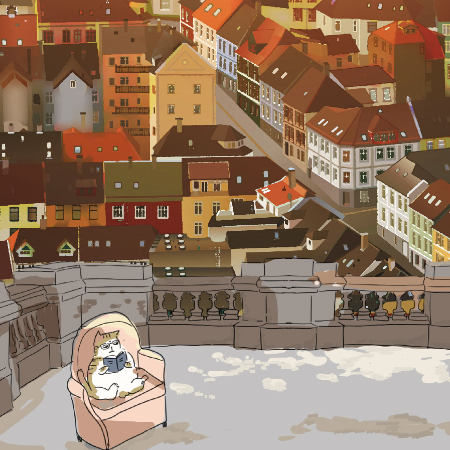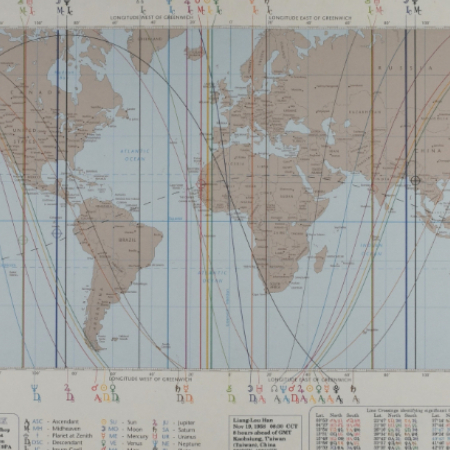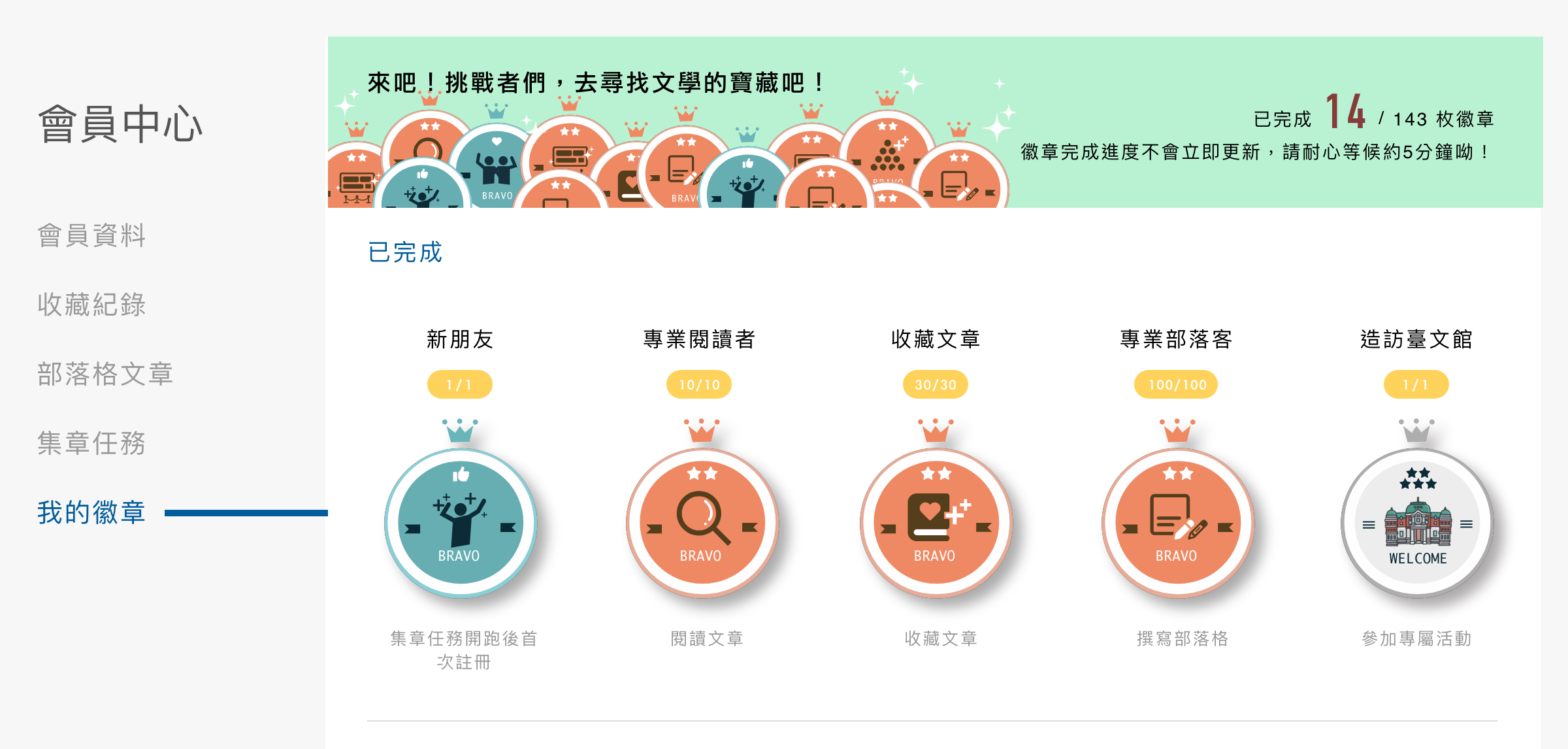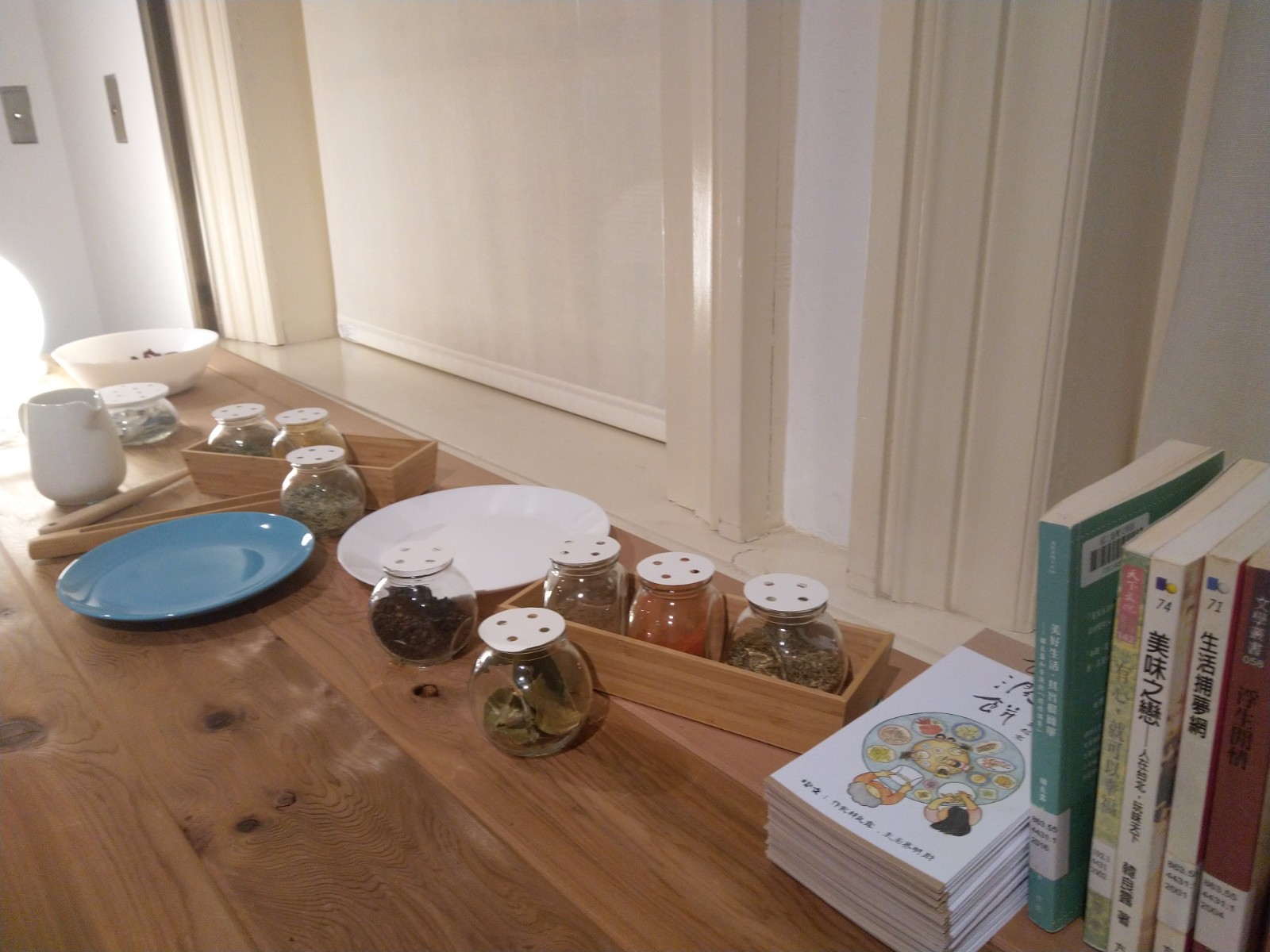
During her youth, Liang-Lou Han usually went to the market with her father and grandmother who were good at cooking; they not only made her childhood rich in taste, but also inspired her taste buds and helped her achieve a splendid life with her tongue.
At the age of 33, she became a full-time traveler. She enriched the experience and the energy of life by traveling around the world, tasting exotic food and wine, and extending her observation of local cultures. Slow living, slow eating and slow moving were her consistent attitudes. She increased her motivation for writing with the taste of life in all aspects.
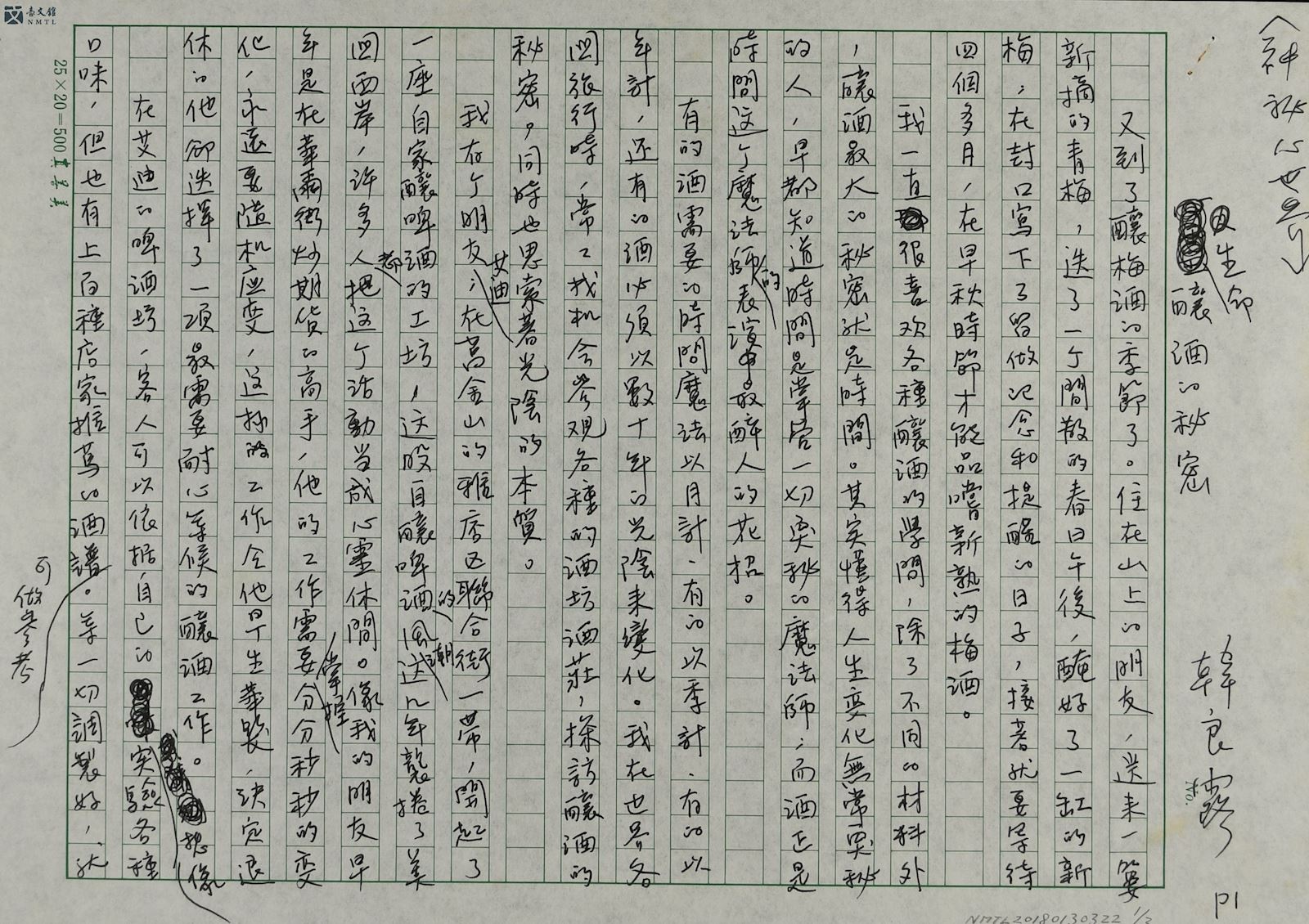
"The Mysterious World of Heart - The Secret of Wine Brewing with Life", manuscript donated by Chuan-Pin Chu.Liang-Lou Han believed that the secret of wine brewing is time, the magic of time. She was fond of wine and published many related works, including: "Tipsy: The Aesthetics and Life of Wine Tasting", "Tipsy Love: The Meeting of Travelers and Wine", "Sips and Liang-Lou", and "Let's Get Tipsy Together".
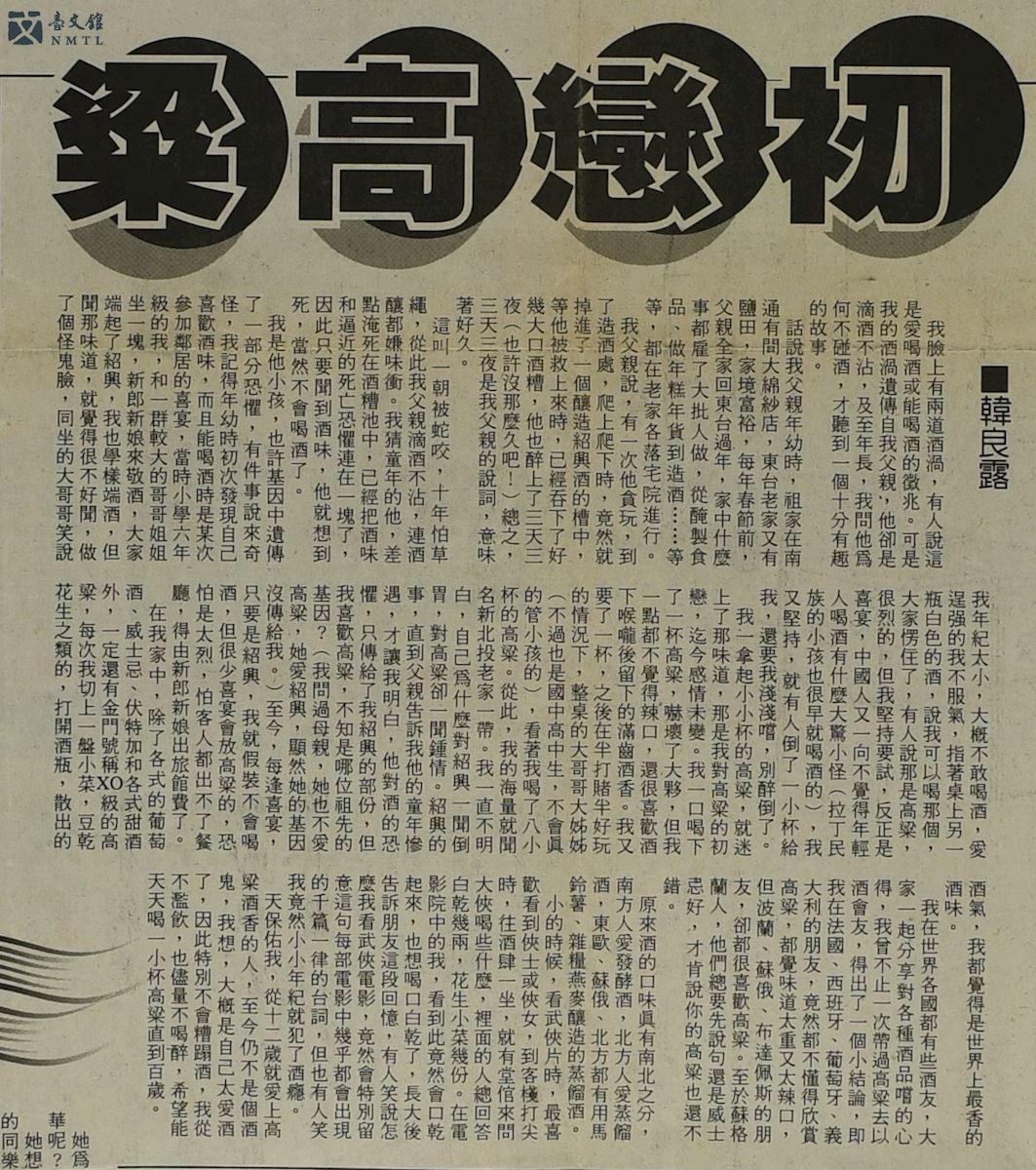
The newspaper "First Love with Sorghum", donated by Chuan-Pin Chu. Liang-Lou Han, with two dimples, had been fascinated by sorghum wine since she was 12 years old. She thought that sorghum was the most aromatic wine in the world. The article was published in China Supplement on June 16, 2001 and later included in Let's Get Tipsy Together.
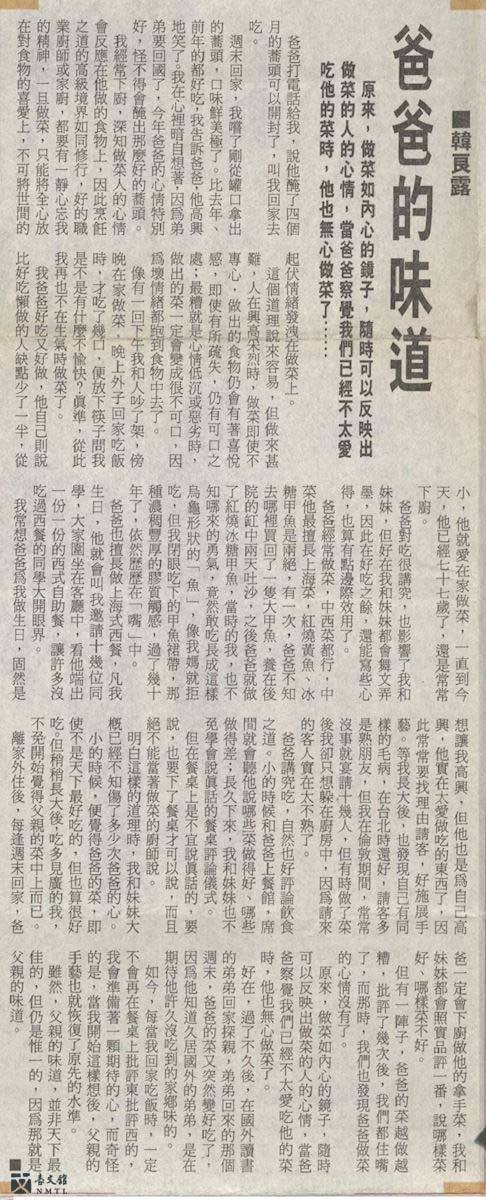
“Dad’s Dishes”, a copy of the newspaper, donated by Chuan-Pin Chu. Liang-Lou Han's father loved to cook, and when he realized that his children did not like to eat the dishes he cooked, he didn't want to cook anymore. Liang-Lou Han realized that dishes would reflect the mood of the people who made them. Dad's dishes might not be the best in the world, but they were unique. Published on June 1, 2001 in United Daily News Supplement, and later included in Delicious Love: Living in Taipei, Playing with the World.
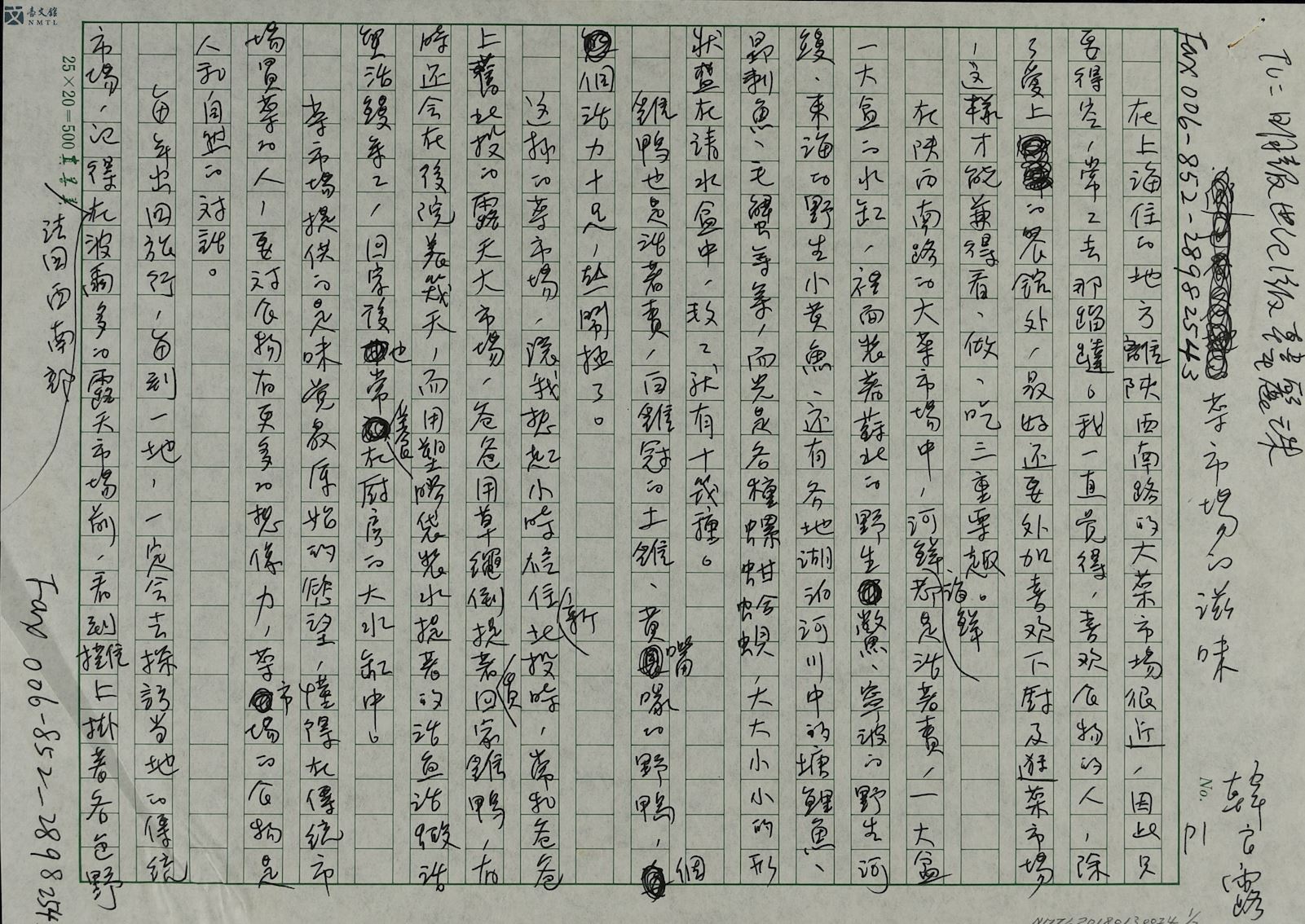
Manuscript of "The flavor of the Traditional Market", donated by Chuan-Pin Chu.Liang-Lou Han believed that the traditional market promotes the most original desire for tasty food, and that the food in the traditional market is a dialogue between people and nature. The article is included in It's Fun to Eat: The Delicacies of Liang-Lou Han and Julian.
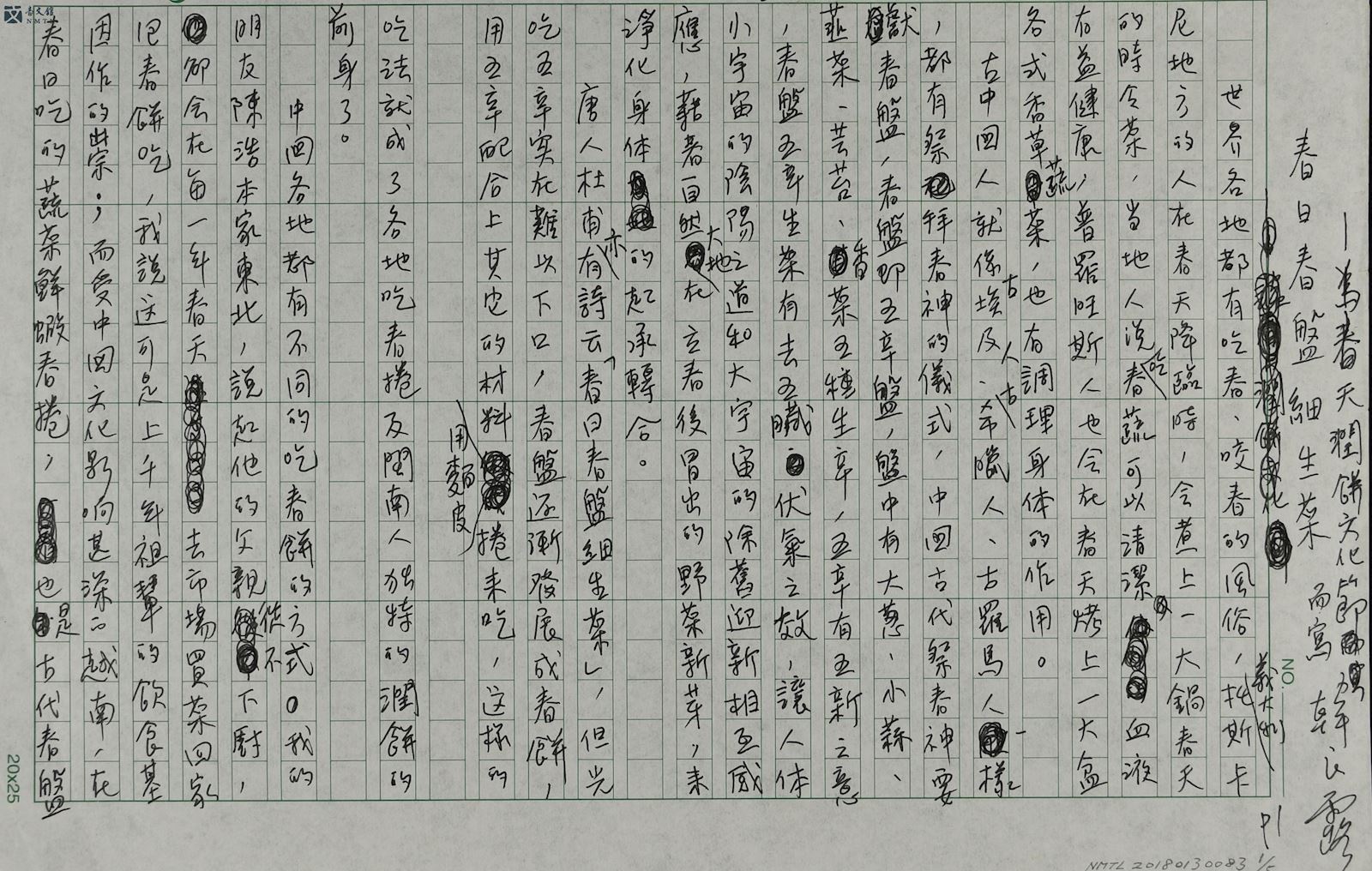
Manuscript of "Eating Seasonal Vegetables in Spring", donated by Chuan-Pin Chu.In order to cope with solar terms, the ancients ate spring plates with five pungent spices when spring commenced, thinking that eating spring vegetables could cleanse blood and remove old cells from the body. Published in Health Weekly of United Daily in 2009.
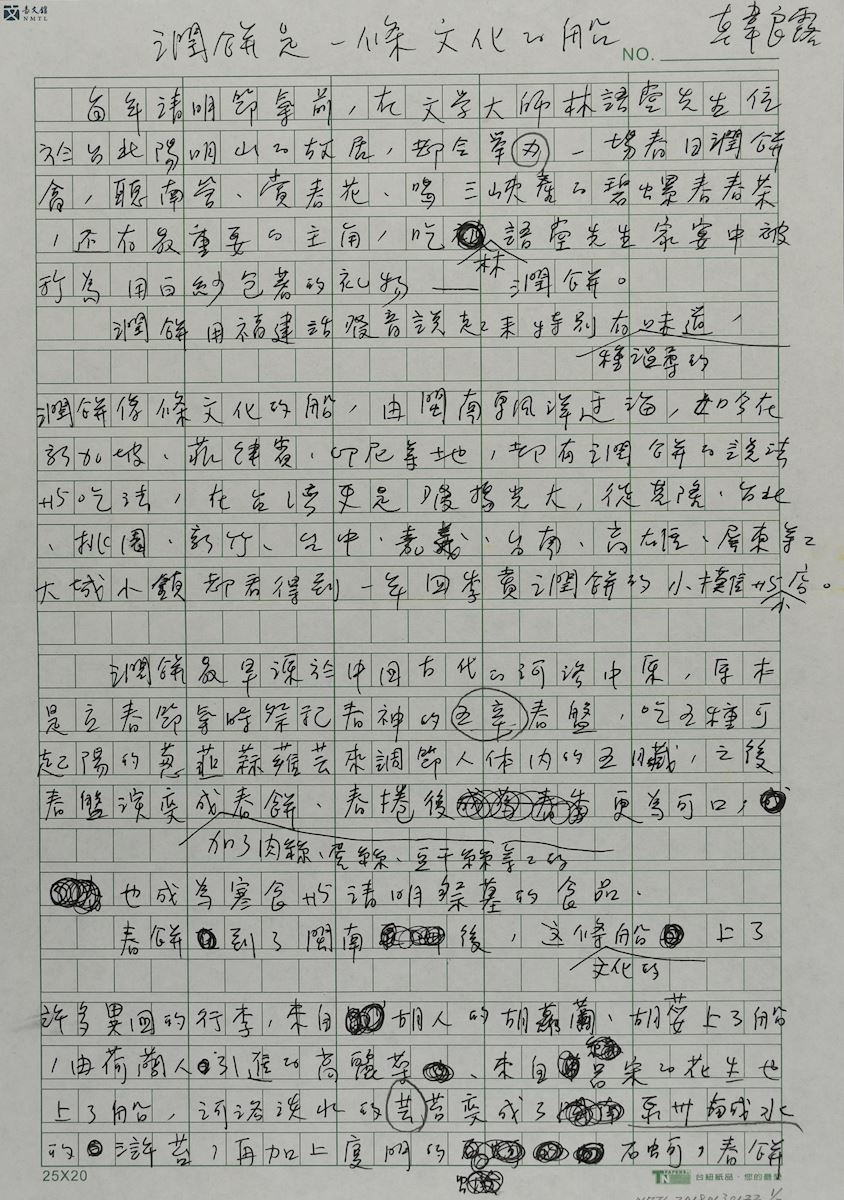
"Taiwanese Popiah is a Cultural Boat" manuscript donated by Chuan-Pin Chu. Taiwanese popiah originated from the ancient Central Plains of Heluo, China. Just like a boat crossing the sea from southern Fujian, passing Singapore, the Philippines and Indonesia, Taiwanese popiah is flourishing in Taiwan. The manuscript was collected in the 6th "Spring Taiwanese Popiah Culture Festival" activity book in 2012.
.jpg)
The illustration “Liang-Lou Han’s Cooking portrait”. Creator: Chuan-Pin Chu, provided by Chuan-Pin Chu. Liang-Lou Han’s husband Chuan-Pin Chu personally illustrated Liang-Lou Han who was tasting the food.
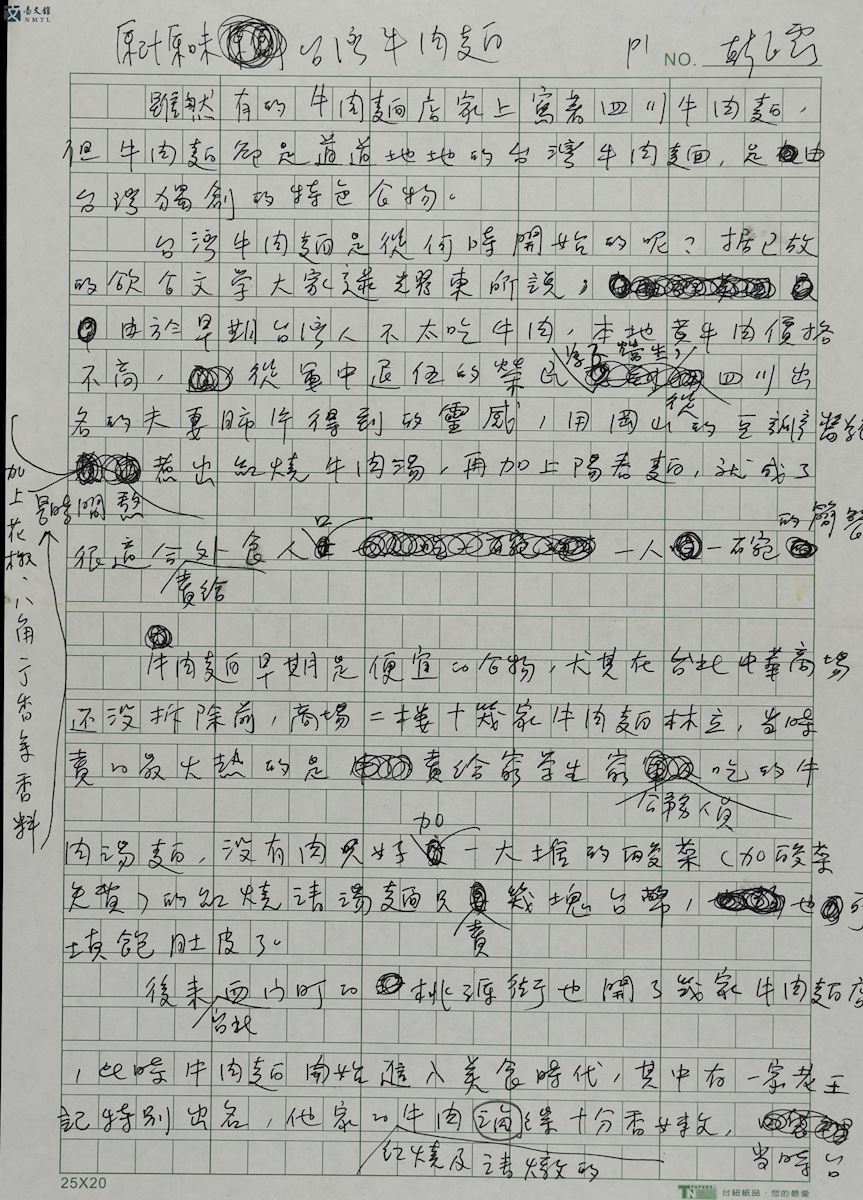
Manuscript of "Original Taiwan Beef Noodles”, donated by Chuan-Pin Chu. Taiwan Beef Noodles is Taiwan’s unique specialty food, invented by veterans and sold exclusively to out-eaters. Liang-Lou Han detailed the taste and the origin of beef noodles in "Nostalgic Beef Noodles" in the book The Aftertaste of Taipei.
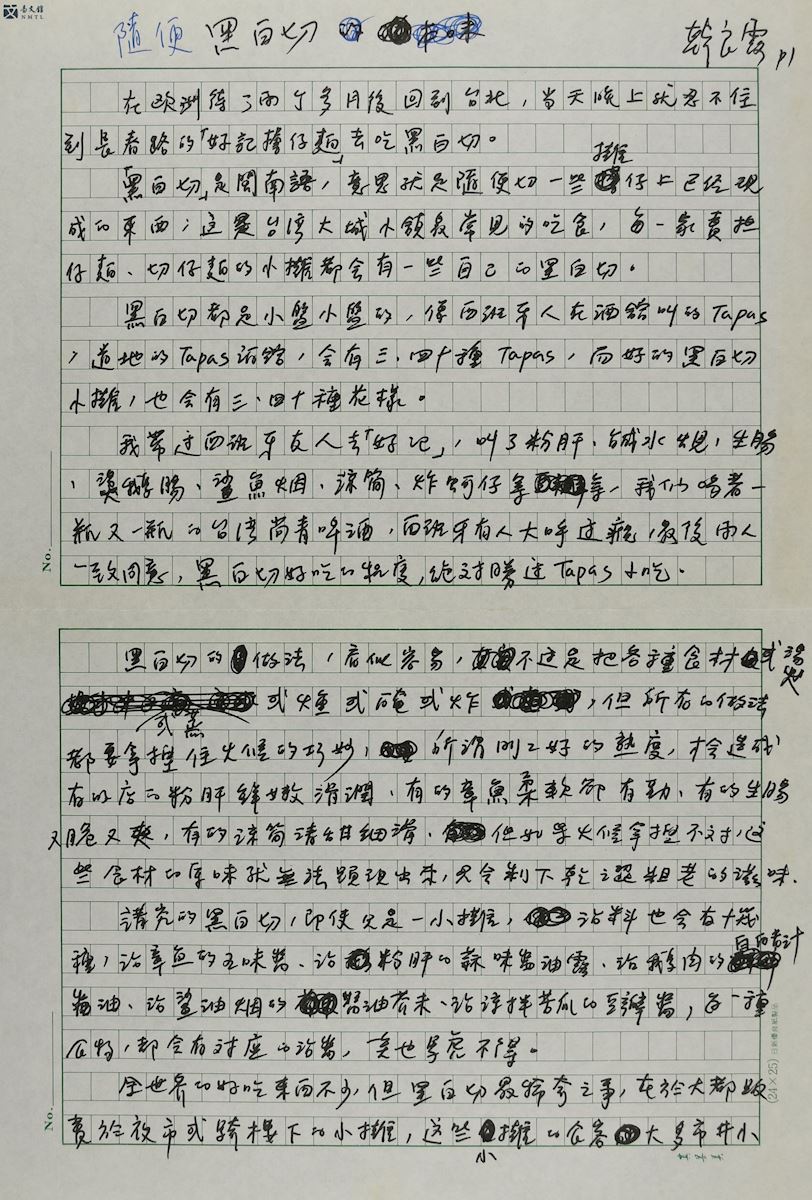
Manuscript of "Randomly-Cut Side Dish Platter", donated by Chuan-Pin Chu.A common delicacy which can be found in Taiwan's night markets or the overhangs of storefronts, a food stall dish with a big banquet style. The article is included in It's Fun to Eat: The Delicacies of Liang-Lou Han and Julian.
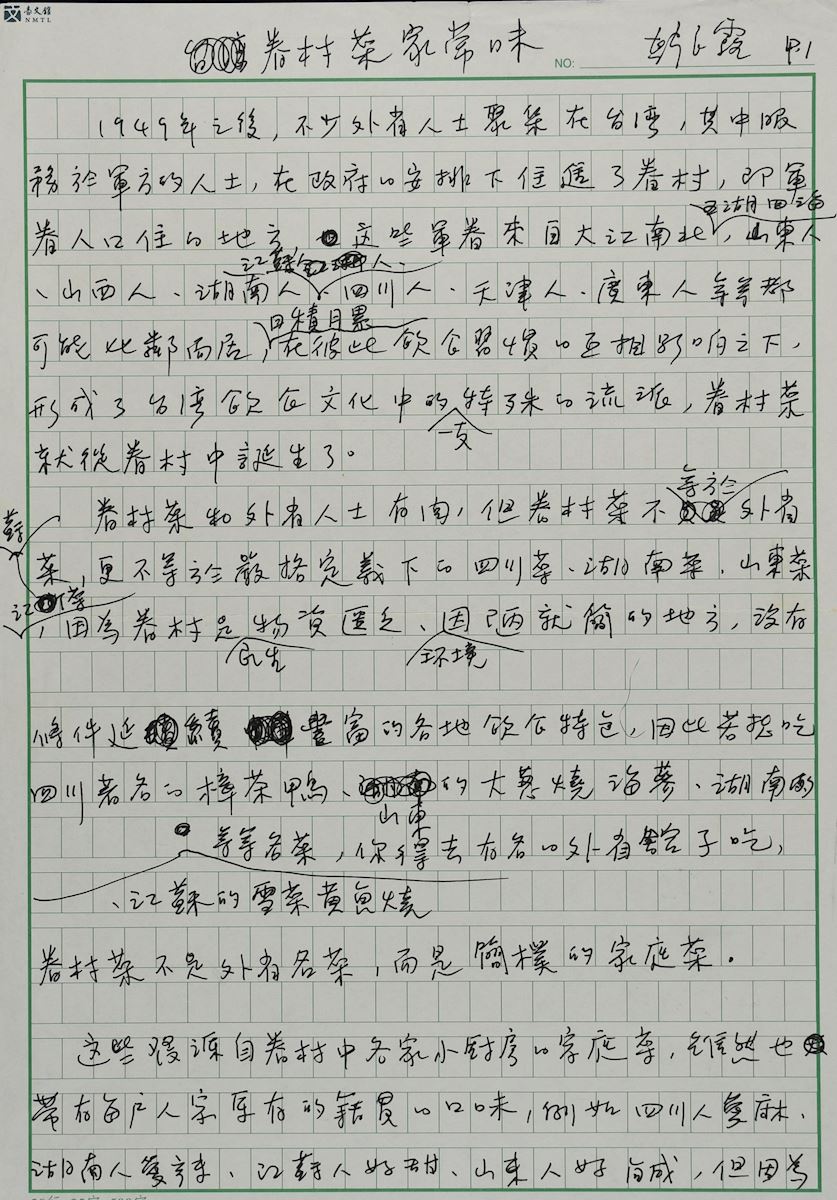
Manuscript of "The Home-Cooked Dishes of the Military Dependents' Village", donated by Chuan-Pin Chu. People from other provinces who came to Taiwan in 1949 were arranged by the government to live in military dependents' villages. Due to the influences of each other’s eating habits, so-called "military dependents’ village dishes" were born, which formed a special genre of Taiwanese food culture. Liang-Lou Han believed that the military dependents’ village cuisine was not famous dishes from other provinces, but simple home-cooked dishes.
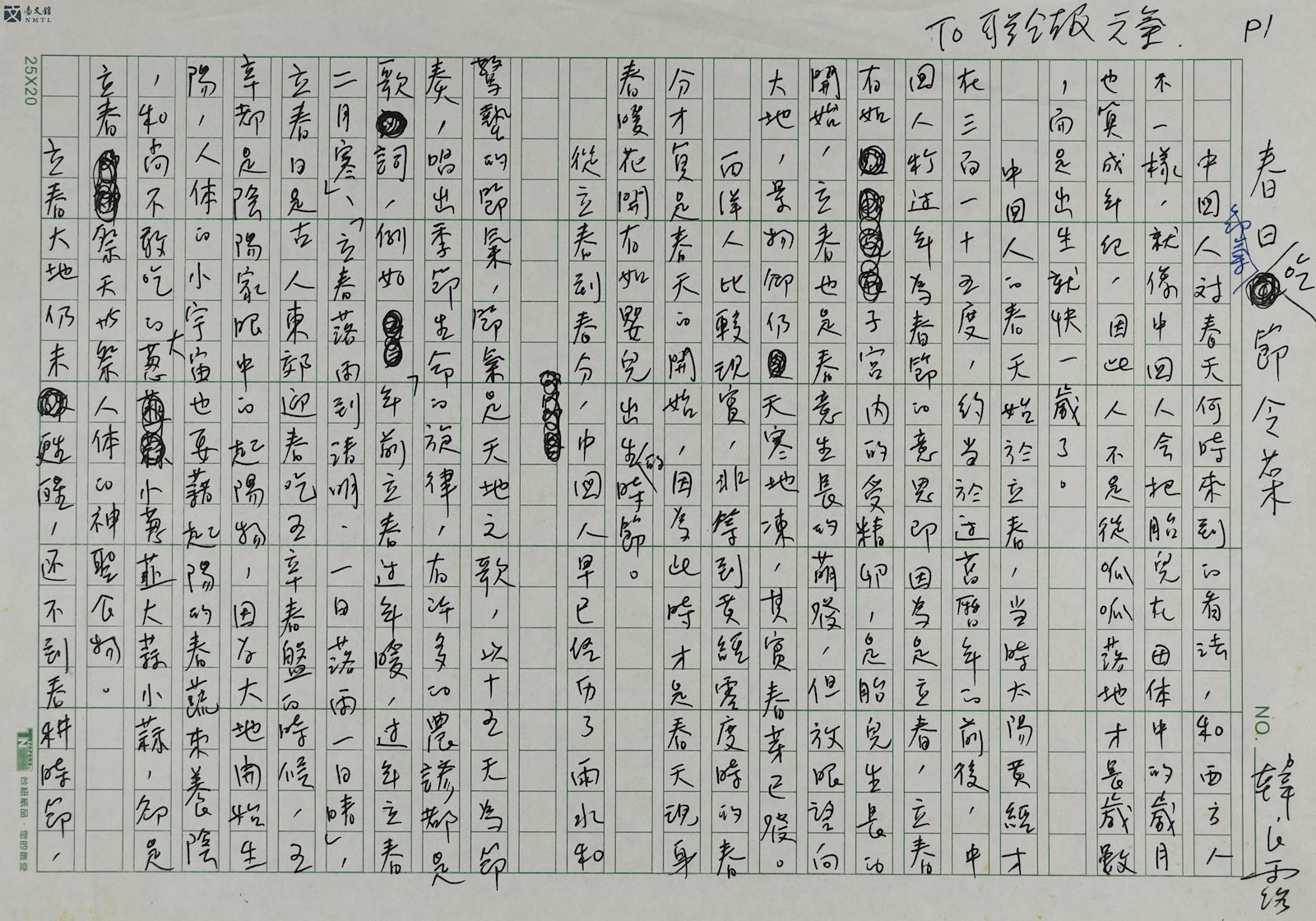
Manuscript of "Eating Seasonal Vegetables in Spring", donated by Chuan-Pin Chu.In order to cope with solar terms, the ancients ate spring plates with five pungent spices when spring commenced, thinking that eating spring vegetables could cleanse blood and remove old cells from the body. Published in Health Weekly of United Daily in 2009.
.jpg)
"Golden Tripod Award" Trophy provided by Chuan-Pin Chu.In April 2015, the deceased Liang-Lou Han won the 39th Golden Tripod Award's Book Publishing Award for a Non-Literature Book with The Flavor of Liang-Lou Family. The book is full of intellectuality and sensuality. The wonderful things, time and people are memorized through food.
.jpg)
Golden Bell statuette, provided by Chuan-Pin Chu.Liang-Lou Han’s "Creative Taipei Roaming" won the best presenter in Educational and Cultural Program of the 45th Radio Golden Bell Awards in 2010
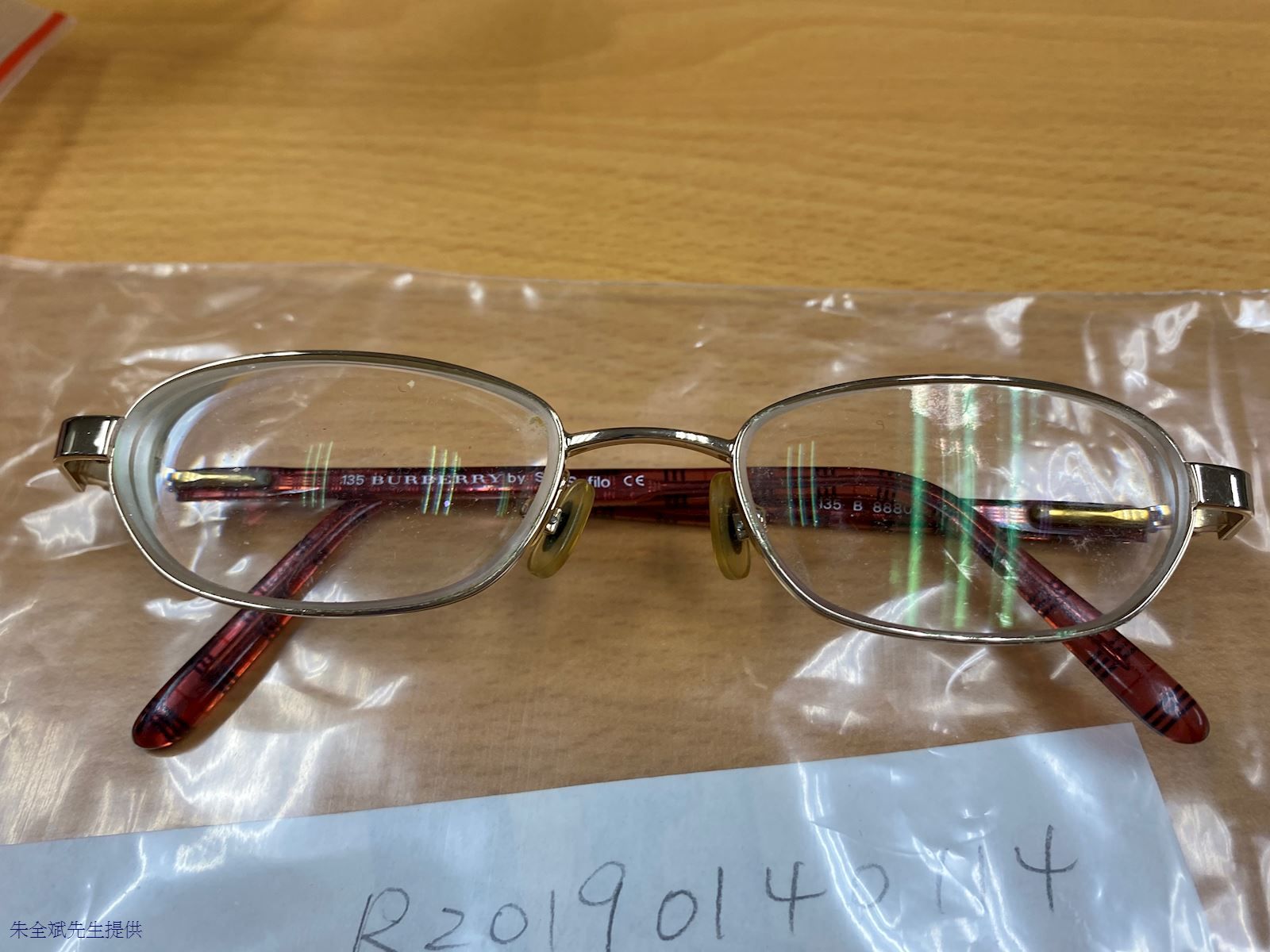
Liang-Lou Han’s BURBERRY thin metal frame glasses, provided by Chuan-Pin Chu.
